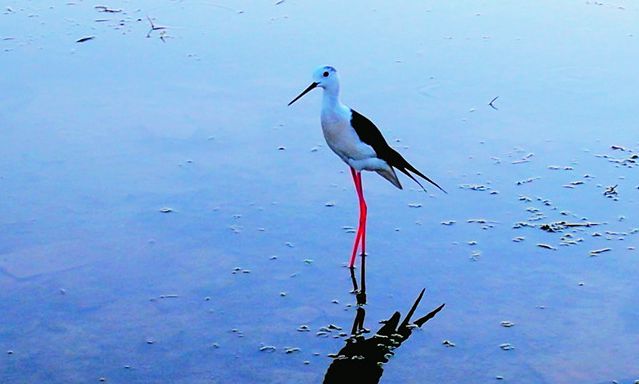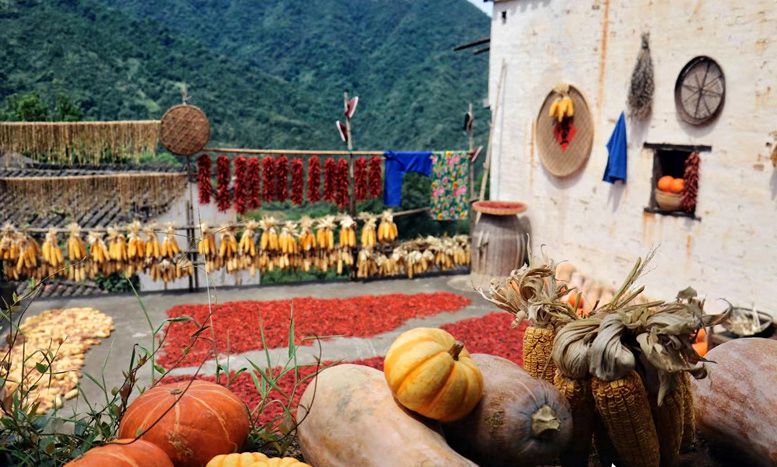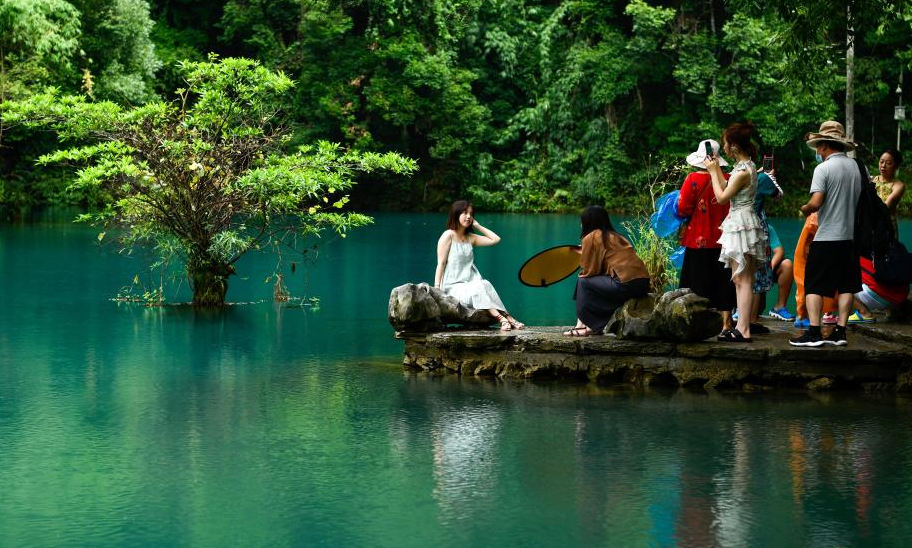Culture of "Gypsies of the sea" well protected in China's Hainan province
They live on junks and boats. They build boat dwellings and make a living by fishing. They are the Tanka people, also known as the "gypsies of the sea."
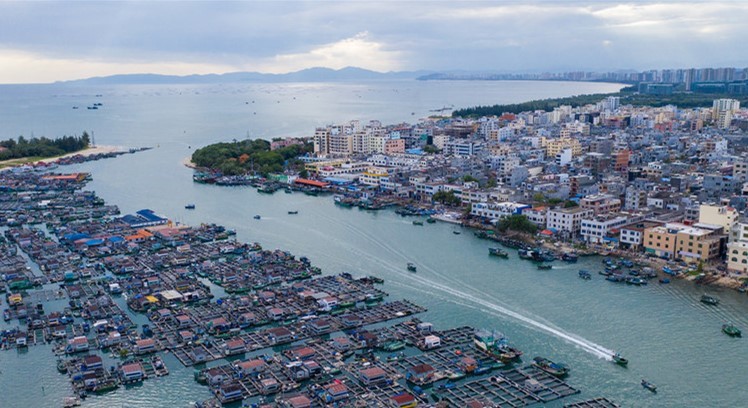
Photo shows a "floating village" of the Tanka community in Xincun township, Lingshui Li autonomous county, south China's Hainan province. (Photo/Li Hao)
The Tanka people are Han Chinese. Living on seawater for generations, they have developed unique customs different from those on land, such as wedding ceremonies hosted on the water and Tanka ditties, a type of short simple song that expresses the emotions of the Tanka people.
In Xincun township of Lingshui Li autonomous county in the southernmost province of Hainan, there are several "floating villages" inhabited by the Tanka people. At present, the township is home to 456 seafood farms and 1,475 junks. There are over 5,000 Tankas living and working on the sea in the township.
At the port of Xincun township, rows of houseboats are floating by the shore, and beyond them are many seafood farms, which are made of net cages. These houseboats and seafood farms, adjacent to each other, form a broad "floating village."
As small as these houseboats are, they have everything from living rooms and bedrooms to kitchens and bathrooms. They offer a place for fishermen to rest after spending a tiring day on the sea.
To better facilitate transportation in the floating village, the Tanka people invented "taxi boats" that shuttle between seafood farms and the port, and the taxi boats are frequently taken by villagers, students and tourists.
The Tanka people living at the Xincun port pursue their traditional livelihood of fishing. Fishermen go fishing at dawn and return to the port just hours later to sell their harvests, while their family members staying at home sort the catches, wash seafood farms and weave fishing nets.
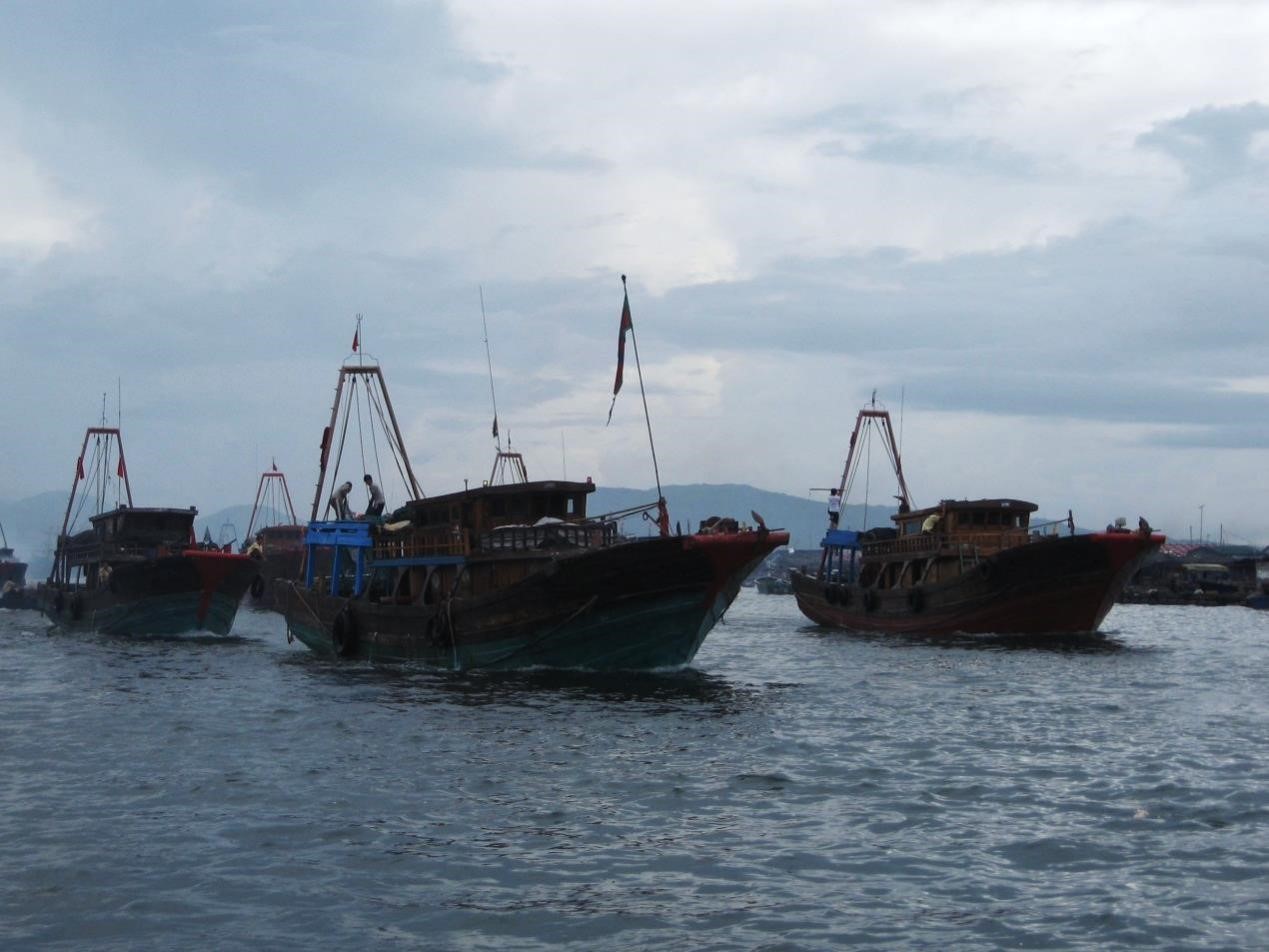
Fishermen are going to the sea after the off season ends in Xincun township, Lingshui Li autonomous county, south China's Hainan province. (People's Daily Online/Huang Ju)
The Tanka people always sing the Tanka ditties, or the "salt-water songs," one of the most known types of folk music in Hainan province. The ditties carry the memories and express the emotions of the Tanka community.
To protect and inherit the Tanka culture and make it into a cultural industry, Lingshui Li autonomous county has taken great efforts to restore the marine ecology and encourage fishermen to move onshore, as well as develop deepwater fishery and seaside leisure businesses. The county, combining culture and tourism, is striving for both ecological and economic benefits.
Cleaning the polluted seawater and tidying up the seafood farms, the Xincun port has gone through drastic changes and is embracing an increasing number of visitors.
A museum of Tanka culture is currently under construction and B&Bs with Tanka characteristics are also developing. It is reported that the museum, together with other tourist attractions in Hainan, such as the Nanwan Monkey Island and the Xinying Mangrove National Wetland Park, will jointly form a network that promotes local tourism clusters and enhances regional economic strength.
Shen Xiaoming, Party chief of Hainan, said during an inspection tour to Lingshui Li autonomous county that the autonomous county should shoulder the responsibility of protecting and developing the Tanka culture and develop new business models centering on the characteristics of the Tanka community.
According to him, Lingshui Li autonomous county will develop a series of tourism projects to better inherit and protect the Tanka culture.
Photos
Related Stories
- China's Sanya strives to ensure daily life supplies for local residents, stranded tourists
- Four more cities in Hainan in ‘static management’ as 1,140 COVID-19 cases reported in a week
- China speeds up construction of Hainan Free Trade Port
- 2nd China Int'l Consumer Products Expo concludes in Hainan
- Night economy revs up local consumption in Haikou, S China’s Hainan
- Specialty industries bring wealth to township in south China’s Hainan
- Hainan on track with free trade port goal
- Construction of Hainan FTP progresses steadily
- Construction of China's first commercial spacecraft launch site starts in Hainan
- Mysterious singing sands discovered on Hainan coast
Copyright © 2022 People's Daily Online. All Rights Reserved.






